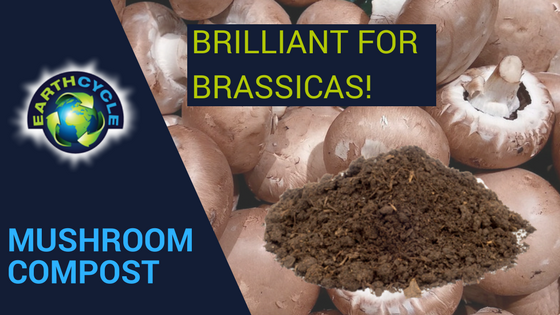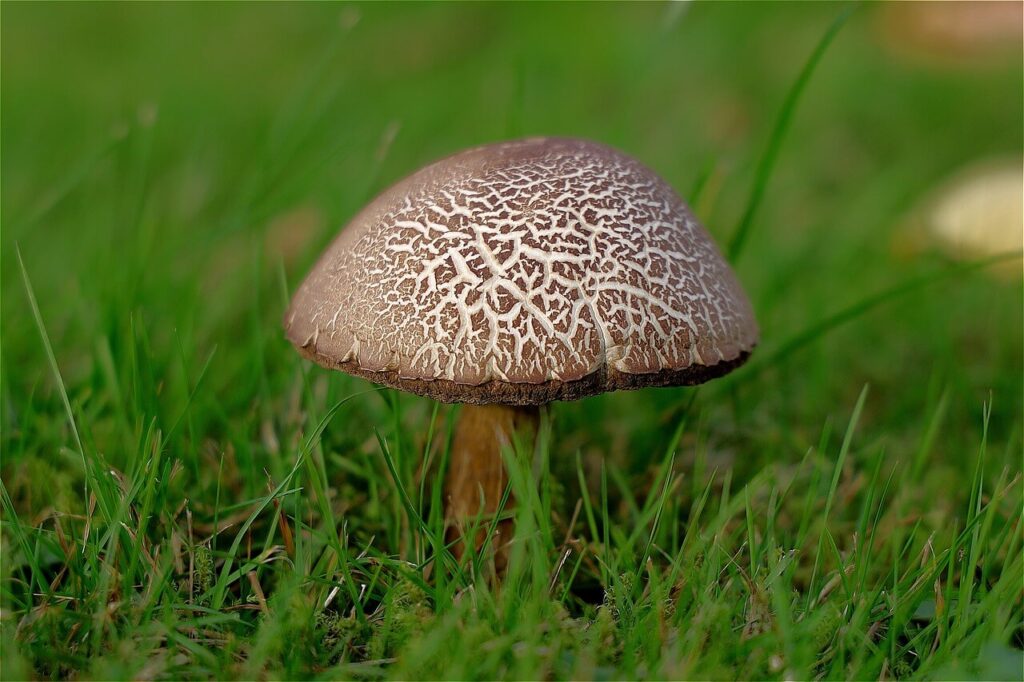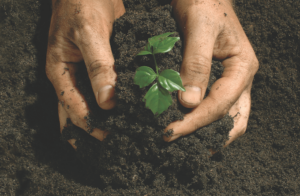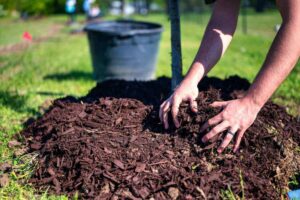What is Mushroom Compost?
Mushroom compost, or spent mushroom compost, is exactly as it sounds – the residual compost waste generated from the production of mushrooms. But that’s perhaps why so many people don’t understand its purpose or potential uses. If it’s spent, what value could it possibly still hold?
All compost started life as something else. At Earth Cycle the majority of our compost comes from our own recycling centre which takes in green waste, primarily from green bin services run by councils, and composts it down over a 14-week cycle to create a rich peat-free product suitable for use in organic systems.
Mushroom compost is the same. After several cycles of mushroom growth the nutrients in the compost become depleted, making it unsuitable for sustaining additional crops of mushrooms. But even though the nutrients required for growing mushrooms have depleted, there are still plenty of other nutrients left that can be used to support and enhance the growth of other fruit, veg and plants.
Our mushroom compost comes from commercial mushroom growers who want to maintain a growing medium that supports high volume, consistent quality growth. So, they will usually switch their compost out more frequently than small-scale growers – providing us with a good source of mushroom compost. Farmed mushrooms also grow throughout the year, so mushroom compost always has a good supply without some of the peaks and troughs that other composts, such as our cow compost have. As an example, at the end of the summer, we always have huge volumes of our premium compost because of the increased volumes of green waste that hit our facility during the spring and summer. Likewise, we have more cow compost in the winter and spring as the herds come into the shelter of the barns.

What’s the nutrient value of Mushroom Compost?
Once it’s served its role as a growing medium for mushrooms, mushroom compost is typically low in nitrogen. But it will still be rich in other valuable nutrients such as phosphate, potassium, calcium and magnesium (N 0.7%, P 0.3%, K 0.3% – a 2:1:1 mix) plus a whole range of trace elements such as iron, boron, copper, zinc and manganese. The salt levels are low, when compared to most other composts, but the chalk content is high which means it is alkaline and good for plants that enjoy soils with a pH above 7.1 (7 is neutral).
What is Mushroom Compost good for?
Even though it is no longer suitable for growing mushrooms, mushroom compost can inject plenty of organic matter into your garden soil. Perfect for enriching your soil to support healthy plant growth. Here are just a few of the places you can use it:
· Containers – mix mushroom comport with topsoil and use to fill or bulk out beds and also as a growing medium in containers.
· Vegetables – if you’re growing vegetables, mushroom compost is suitable for most vegetable crops but it’s particularly good with brassicas such as cabbage, broccoli, cauliflower, kohlrabi, sprouts and kale. Simply dig it into the soil before planting your plugs or top dress during the growing season.
· Lawns – mushroom compost is great as a soil conditioner. It helps with structure, adds nutrients, enhances water retention, and promotes beneficial microbial activity in the soil. Either lay under new turf or seed or use as a top dressing. Mix with sharp sand to create a divot filler and level humps and bumps.
When not to use Mushroom Compost
Whilst mushroom compost can be used in almost all areas of the garden, there are certain areas where it’s not recommended. Because of the high chalk content, it’s best not to be used on acid-loving plants, as these plants prefer acidic soils.
Because the compost will contain spores from its previous life as a growing medium for mushrooms there is a chance that in the right conditions – dark and damp areas – that it will grow mushrooms. We therefore always recommend that you avoid using mushroom compost in the garden if you or anyone you know is allergic to mushrooms or you have pets that might investigate and/or eat growing mushrooms. The mushrooms themselves will have been edible varieties, so it’s not the case that these are poisonous if ingested, but they may still contain allergens.
Earth Cycle products
Earth Cycle has all the topsoils, composts, and mulches you need to help you grow a thriving garden or allotment. Our products can be delivered to your door across the United Kingdom. Order your products online today for kerbside delivery and let’s get growing!




